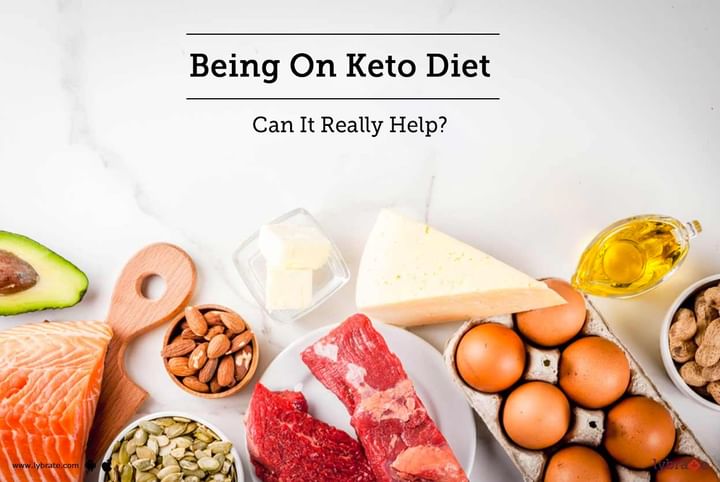Being On Keto Diet - Can It Really Help?
A ketogenic diet, broadly known as the keto diet is popularly known for being a low carb diet, as the body produces ketones in the liver that is used as energy. When we consume something that contains a high ratio of carbs, our body automatically produces glucose and insulin. Glucose is considered to be the easiest molecule for our body to transform and use as energy, thus it can be used as over any other energy source. On the other hand, insulin is manufactured in our body to carry the glucose that is present in our bloodstream to take it all around the body to create maximum energy.
As glucose is generally being used as the main source of primary energy, our fat amount in our body is not required for and thus it is stored. As we can observe in a normal high carb diet, our body uses glucose as the primary source of energy. As we lower the intake of carbs, the body subsequently goes into a state which is known as ketosis.
Ketosis is considered to be a normal natural process of our system that our body initiates that helps us to survive when food intake is low in our body. During such a state, our human body produces ketones, which are the outcome of the breakdown of fats present in the liver.
Why ketogenic diet is good for you?
There are many advantages and benefits of a ketogenic diet in our body, from loss of weight to therapeutic activities. The following are some of the benefits of a keto diet:
-
Weight Loss: This is the most basic benefit for a keto diet in our body. Obesity is never good for one’s health, thus following a keto diet will definitely decrease your body weight and you shall be healthy. The keto diet basically uses our body fat as an energy source, so weight loss is obvious. During a keto diet, our insulin level that is the fat storing hormone in our body drops at a really massive rate which in turn turns our body into a fat releasing or fat burning machine. Thus following a keto diet is essential for your body as it is good for your health. Many dieticians prescribe keto diet to patients who are suffering from obesity. Although it is a difficult diet for a foodie, yet it is very effective.
-
Blood sugar control: Keto diet controls your blood sugar too, it is more effective than normal low carb diet. With the control of fat in the body during keto, blood sugar stays in control too.
-
Mental stability: Keto diet helps you to mentally focus on your work. Ketones are known to make your mind sharp as it is a great source of fuel in your brain.
-
Energy increase: With controlled blood sugar and mental stability, it is evident to have high energy as ketone turns fat into energy in our body.
-
Hunger back to normal: Keto diet helps in normalizing your hunger too. Sudden hunger will leave your body and mind.
There are few other uses as well such as it helps in acne repair, can be used to treat epilepsy, cholesterol and blood pressure regulation and resistance to insulin. Carbs from vegetables, nuts and diary products are the main source of keto diet. Thus, keto is one of the healthiest diets for a human being to stay fit!
A person on a ketogenic diet should consume more of;
- Vegetables: Spinach, broccoli, kale, cauliflower, cabbage, Brussel sprouts, lettuce. Include green leafy and above the ground vegetables as they are low in carbohydrates.
- Fruits and berries: Strawberries, raspberries, blackberries, kiwi, avocados. Consume raspberries and blackberries in limited quantity.
- Walnuts, sunflower seeds, macadamia.
- Coconut oil, olive oil, avocado oil, macadamia oil.
- Fatty fish, coconut butter, cocoa butter, egg yolk, hard cheese (Cheddar, Feta, Parmesan), soft cheese (Mozzarella, Colby, Monterey Jack).
- Vegetable oil, if used, should be cold compressed.
- Include more of saturated and monounsaturated fats into the diet.
On a ketogenic diet, one should avoid;
- Fruits: Apples, oranges, bananas, mangoes.
- Vegetables: Potatoes, tomato, eggplants, mushrooms, yams.
- Blueberries.
- Honey, maple syrup.
- Cereals, wheat, corn, rice.
- Avoid processed polyunsaturated fatty acids (PUFA) and trans fats.
One needs to drink water at regular intervals of time. Physical activities like exercise, jogging, morning walks are a must.
The ketogenic diet should be low in carbohydrates, moderate in proteins and contain high amounts of fats.



+1.svg)
